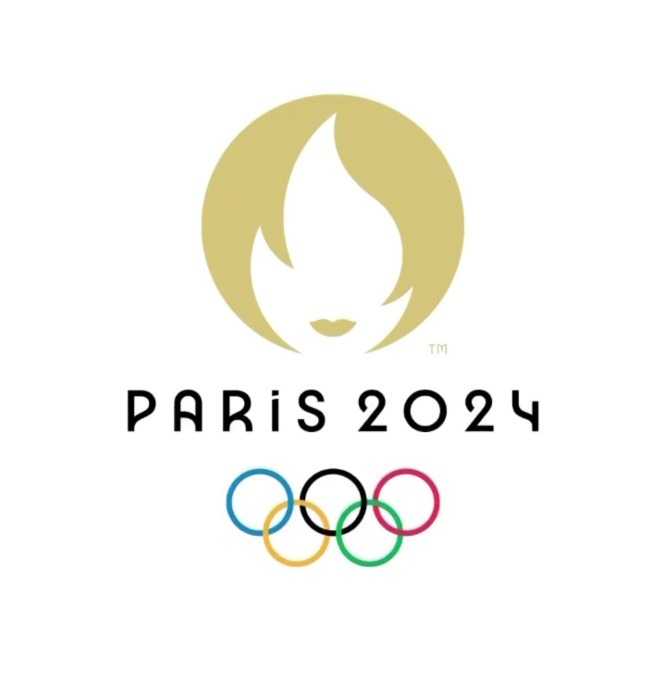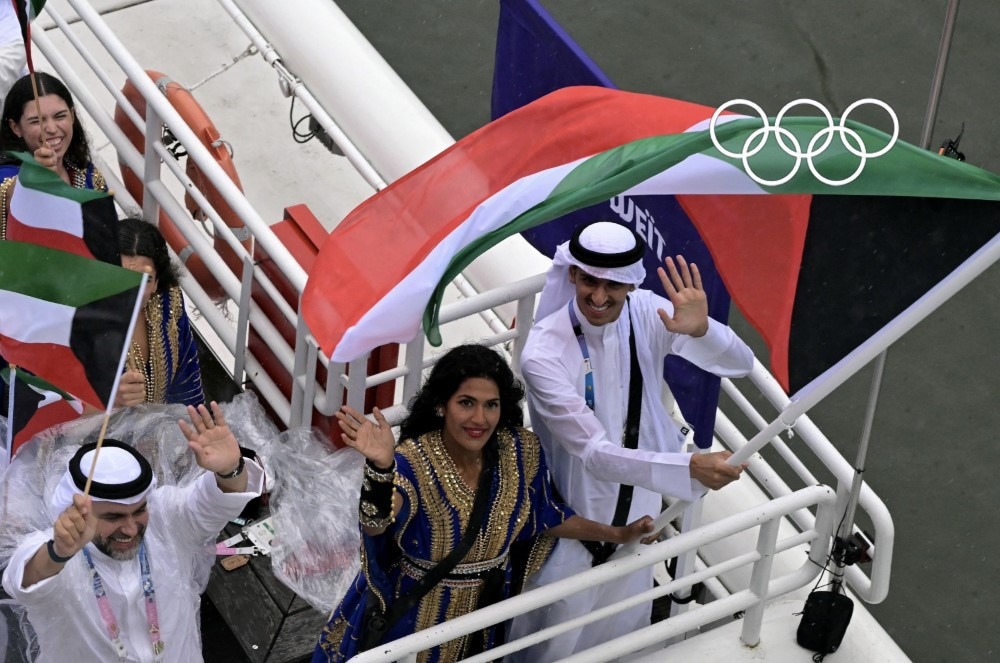Olympics 2024, paving a path to peace, solidarity

By Reaven D’Souza
Executive Managing Editor
The 2024 Summer Olympics, officially the XXXIII Olympiad and branded as Paris 2024, got off to a spectacular start on Friday, 26 July. The traditional stadium-based Parade of Nations at Olympic opening ceremonies, was swapped at Paris 2024 for a lively parade of athletes on a flotilla of boats and barges. The parade took the athletes down a 6 km stretch along the River Seine in Paris, as more than 300,000 spectators on the river-bank cheered and waved to the athletes
Despite the rain playing spoil-sport, the parade was made even more riveting with French and international artistes providing dazzling performances from bridges, barges, riverbanks and rooftops along the parade route. The nearly four-hour ceremony to mark the opening of Olympics 2024 culminated in the Olympic torch lighting a hot-air balloon shaped cauldron that appeared to float 30-meters high into the Paris sky.
If the opening ceremony is any sign of what is in store during the next two weeks, the 33rd Olympiad will be remembered as one of the most exciting and eye-catching Games in modern Olympic history. Against a backdrop of iconic Parisian architectural marvels and historical venues, over 10,500 athletes from 206 national Olympic teams are set to compete in 32 sports and 329 events that range from break-dancing and surfing, to the more ‘core’ Olympic competitions of running, jumping and swimming.
Over the next fortnight, Paris 2024 promises to be a stunning display of athletic prowess, showcasing the amazing agility, speed, strength, and skills of the athletes. Each event is certain to bring out the best efforts of competitors as they strive to be faster, go higher, or be stronger than their opponents. Each victory will also be the culmination of years of relentless practice, of ruthless competitiveness, and resolute determination to be the very best.
Every effort by the athletes and players exemplifies the eternal human spirit that seeks to triumph against odds and overcome adversities. They embody the timeless and unbridled human passion to compete and to win, to rise above the rest, and to be acknowledged as the best. It is no wonder that the Olympic Games capture the imagination of people everywhere and from every walk of life.
The Olympics etches in our collective memories those transcendental moments of triumphs and tragedies that every Olympic event unfolds. The heart-rending displays of agonizing pain at losing, and the ecstasy at winning, stirs deep emotions within each one of us. The Games also bring out the raw intensity of competition, the sheer determination, and the stupendous stamina of athletes and players, as they push the limits of human physical and mental endurance.

Exactly a century after the last Summer Olympics was held in Paris in 1924, and first Winter Olympics was held in the city of Chamonix in France that same year, the Olympic Games have now returned to Paris. Having previously hosted the Games in 1900 and 1924, Paris will become the second city, after London, to hold the Summer Olympics three times. France is also in the unique position of playing host in the modern era, to a total of six Olympics, including three Winter Olympics,
The 2024 Olympics is being held in venues across Paris, as well as in 16 other cities spread across Metropolitan France, and its overseas territory. For instance, basketball preliminaries and handball finals will be held in Lille, which is 225 km from the host city. Football will be held in five other cities, while sailing and some football games will be held in the Mediterranean city of Marseille, which is 777 km from Paris. Meanwhile, the surfing event is scheduled to be held in the overseas territory of French Polynesia, which is more than 15,700 km from Paris.
Similarly, the Olympic torch relay has traversed great distances. The relay, which began with the lighting of the Olympic torch at Olympia in Greece on 16 April, then crossed Greece to reach France by boat on 9 May. The relay then visited 65 areas in Metropolitan France and six overseas French territories, before concluding with the lighting of the Olympic Cauldron at the Jardins du Trocadéro stadium on Friday.
With Paris 2024, France and Paris hopes to outdo all previous Olympics in every aspect, from dazzling displays of opening and closing ceremonies, to the launch of exciting new sporting events, and holding many events in public buildings and plazas. Paris 2024 will also be promoting gender equality and diversity in a big way. This was apparent in some of the artistic performances staged on the opening day.
According to official sources and media reports, Paris 2024 will record a number of firsts for an Olympic Games. In a distinct divergence from recent Olympics, many of the events in Paris will be held in temporary venues located within the city center. This not only makes the venues more pedestrian-friendly, it also gives visitors a chance to enjoy the city’s many imposing classic buildings and historical sites.
For instance, beach volleyball will be held under the iconic Eiffel Tower. Breaking (break-dance), BMX freestyle, skateboarding, and 3-on-3 basketball will be at the Place de la Concorde, more widely known for its gory past during the French Revolution. Fencing and taekwondo will be at the Grand Palais des Champs-Élysées, an opulent exhibition hall built for the Paris Expo in 1900, and equestrian events will be at the historical Château de Versailles, a major tourist attractions in the world today.

Considering that Paris is the world’s gastronomic capital, Paris 2024 also promises to be a food festival, albeit one with an emphasis on health and environmental sustainability. Olympic eateries will serve double the amount of plant-based food relative to previous Olympics, with 30 percent of the menu comprising plant-based alternatives, including vegan chicken nuggets and hot dogs. Over 200 chefs will also prepare more than 40,000 meals every day to feed the 15,000 athletes, coaches and trainers at the Olympic Village restaurant.
The Olympic and Paralympic medals are also unique. On the obverse they feature an embedded hexagon-shaped iron scrap taken from the original construction of the Eiffel Tower, in a homage to the legacy of Gustave Eiffel, the French engineer who designed the eponymous tower in Paris . On the reverse, the medals feature Nike, the Greek goddess of victory, inside the Panathenaic Stadium in Greece, the venue of the first modern Olympics in 1896.
The Paralympic medals also feature a distinctive design with lines engraved on the edge of each medal in order to be distinguished by touch. Universal braille is also engraved on the medals in a befitting homage to its French inventor Louis Braille. Around 5,084 medals, produced by the French mint Monnaie de Paris, and designed by the Paris-based luxury jewelry firm of Chaumet, will be awarded during the Summer and Paralympic Games.
Besides the excitement of watching performances of national contingents, favored athletes and teams, as well as enjoying the thrills and skills on display over the next two weeks, the Olympics also provide an opportunity for all of us to emulate the timeless values of Olympism — ‘to encourage effort, preserve human dignity, and develop harmony’.
Over the years, the three Olympic ideals have evolved and today they express a more contemporary version — to strive for excellence, to respect others and their diversity, and to celebrate friendships. These ideals form the corner-stones on which the Olympic Games aim to build a better, brighter and more peaceful world for all of us.












